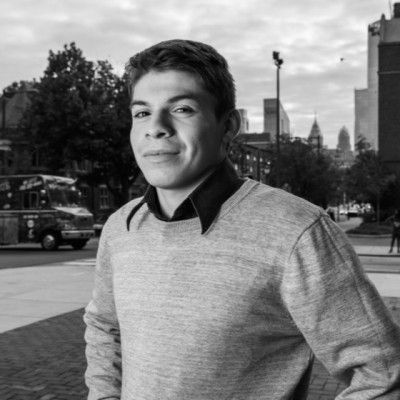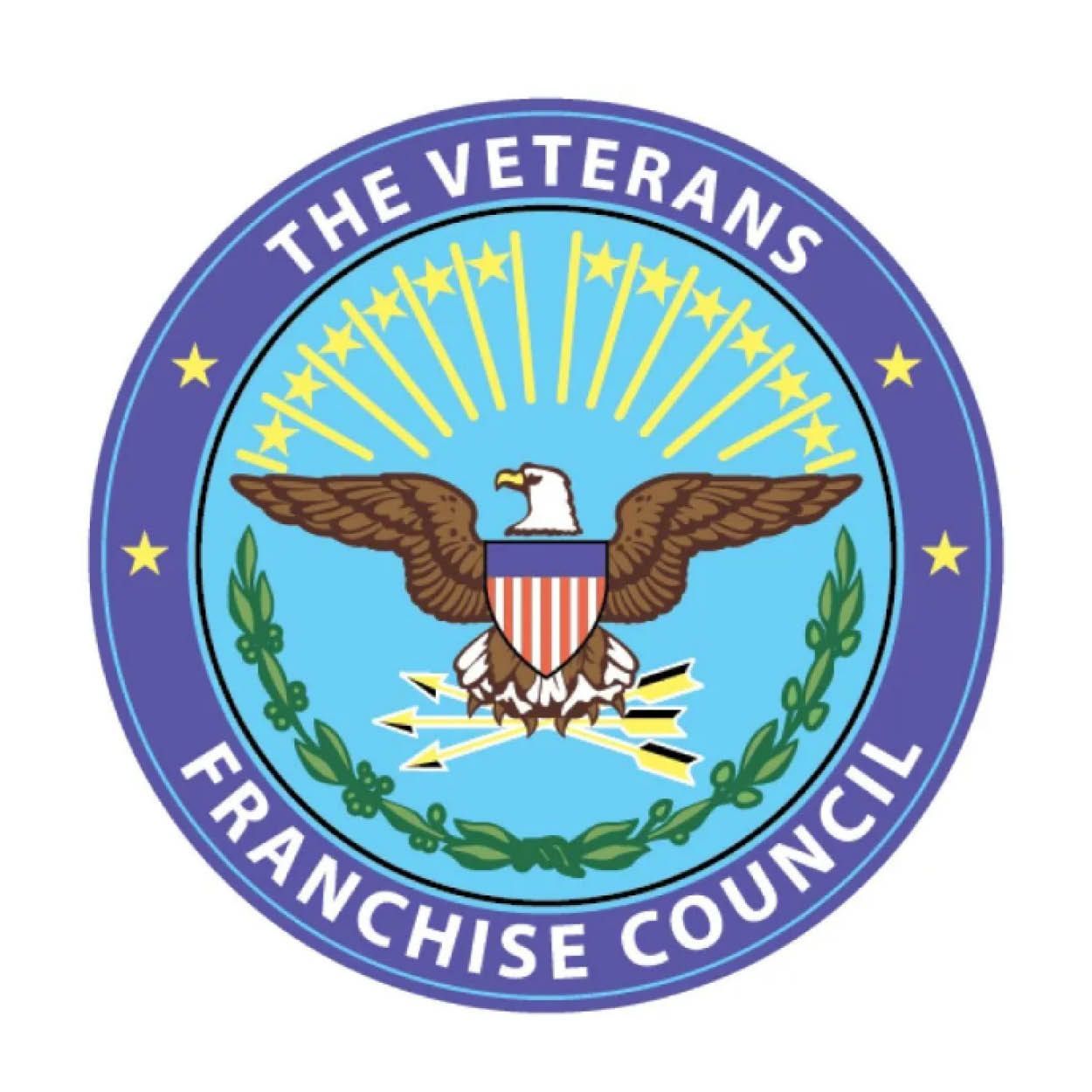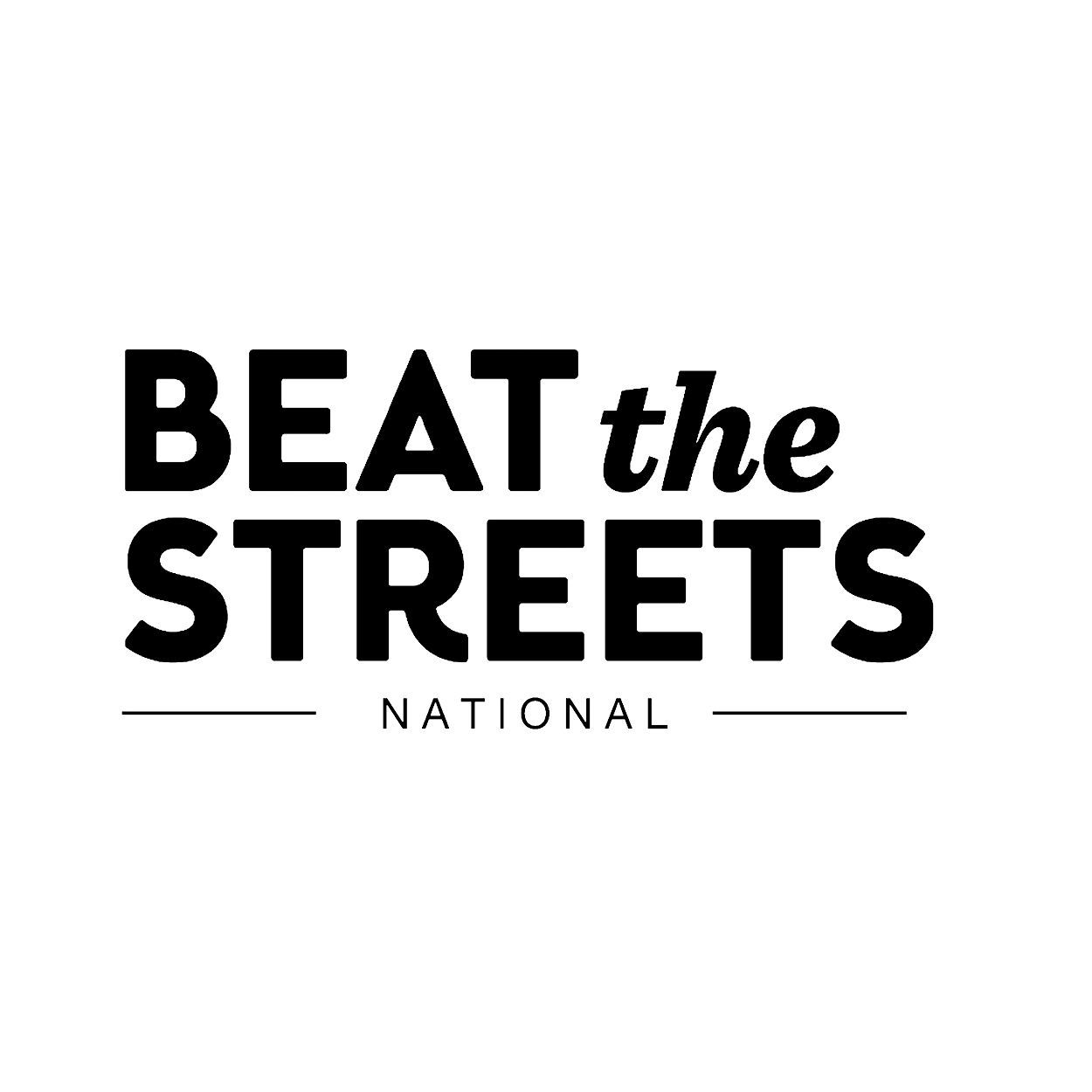Behind Beat the Streets: Jon Guevara

“I’m proud to be a first-generation college student. My father was only able to finish 3rd grade and always talks about how he wished he had the opportunity to continue his education—he says he loved school and loved learning but living in rural El Salvador in the 1970s made it impossible to continue,” explains Jon Guevara, Beat the Streets Alumni and now a crucial team member at Beat the Streets National. “He’s been working since he was a young child; first as a laborer in the farms in El Salvador, then hopping from job to job in the capital city, and finally here in the States--where he’s now a citizen. Maybe it was my father’s love for education that led me to realize the importance of pursuing a college degree, but it was Beat the Streets that allowed me to dream that big.” Jon Guevara, a University of Pennsylvania Alumni, is one of many success stories of Beat the Streets, a non-profit youth development program which targets underserved communities in order to come alongside at-risk youth and positively alter their life trajectory through the sport of wrestling and mentorship programs.
As the oldest child in the family, Jon served as his family’s default interpreter and translator. At the age of 10, when his family moved from NY to Philadelphia, his parents separated. When his mother moved back to New York, Jon stayed behind with his father in Philadelphia to take care of his younger siblings, “Soon after the split, my dad enrolled us into daycare at Brightside so he could continue to work. We didn’t have a car and it was a mile walk from my house. For years, we would walk that mile every morning on the way there and every evening to get home.” It was during his time at the daycare Jon was exposed to sports as he played football with the staff members. He frequently dreamed of joining a youth team, the kind he heard other kids talk about at school, but he knew it cost money that his father did not have, “it cost money, required someone to drive you everywhere, gear and time, none of which we had. There was a lack of access for me. Familiarity was there, desire was there, but the access wasn’t. My father had to work, we barely were making enough to live and I had to help with my siblings.”
With only two uniforms for the entire school year, and without a dryer to dry his clothing, Jon would hang the family's laundry in the basement, “it would always smell weird and I would try covering it up with cologne, hoping no one noticed or asked why. I knew others lacked those ‘basic’ essentials too, but we all pretended like we didn’t notice.” By the time he entered highschool, Jon quickly realized, “as much as I was considered a poor kid, my childhood was rich with fun, diversity, and a plethora of experiences even if my school was considered ‘failing’ according to academic indices.” Unfortunately, in many of the communities Beat the Streets serve, like Jon’s school, 70%+ of the students failed state exams, “We had many young and inexperienced teachers, many of them would cry all the time because they couldn’t handle the work or the students. We had metal detectors but no funding for sports teams. A lot of students I met in this phase of my life are dead, in jail, in prison, etc. but I still remember them. I wonder if they were exposed to Beat the Streets like I was, if their story would have ended differently.”
Unfortunately, many Beat the Streets athletes can relate all too well to Jon’s experiences in highschool. BTS youth share their stories of overcoming adversity in the classroom and in the halls, they tell of the long way home, the gang violence, the drugs, the struggles no child should ever experience. Yet, the most difficult part is hearing of their friends, the ones who did not find Beat the Streets in time, the youth who fell victim to their circumstances.
Why Wrestling?
The word “wrestle,” literally means to struggle; watch a single wrestling match and even if you know nothing of the sport, you will quickly realize there is a physical struggle, a mental struggle, and if you don’t overcome those struggles, or at learn from them, chances are you will be thrown to your back and quickly lose the match. The youth at Beat the Streets know struggle all too well, they typically come from communities that are consumed by climbing poverty rates, crime stricken neighborhoods and schools with high dropout rates and lower graduation rates. As Jon recalls, “wrestling has worked as an analogy for most of the situations in my life. With wrestling, the goal is always to be better. So, modeling certain situations to wrestling sets me up so that I am aspiring to be the best version of myself, whether professionally or in my personal life. Adjustments need to be made. Failure is part of the process.”
While wrestling is a sport that teaches self discipline, accountability, and hard work it also teaches the importance of strategic thinking and perseverance. Other than your opponent, there is no one else on the mat, it’s just you and an obstacle standing in the way of victory. There is no one to help you when you’re in a tough spot, and all too often, for one reason or another, the youth from underserved communities already understand that struggle, and also know how to rise above it. Because Beat the Streets specifically targets communities who are often left in cycles of welfare and poverty, the youth Beat the Streets serve are familiar with struggle, they just need someone to come alongside them and believe in them, someone to help guide them through life, someone to tell them about college and opportunities that they may not even know exist. “I sucked my first year on the mat. I don’t know why wrestling interested me. Maybe it’s because of the very competitive culture of the sport. Its relation to combat? I liked fighting and I was always waiting for the moment when I needed to prove myself, but it never happened. You know when you grow up in schools like mine, you grow up watching your back. Someone might pick a fight with you out of nowhere, start messing with you. You might have to defend yourself and everyday you have to be ready.”
Why Beat the Streets?
“My first time in a BTS (Beat the Streets) wrestling room was my freshman year. I was told there was going to be a clinic there, I thought it meant a medical clinic where you get your physical; I ended up going through a whole wrestling practice.” Jon continued going back to Beat the Streets practices, getting stronger and learning more technique. As his exposure to the sport expanded, so did his love for it, “Little by little I got exposed to new wrestling rooms, I went to council rock room a few times (suburban school with strong wrestling team—they actually had a real locker room and showers and everything), all for free because BTS was paying for it all, even the transportation.”
By his Junior year in highschool, Jon began taking full advantage of the Beat the Streets mentoring center where he was paired with Andrew Lenzi (then a Penn wrestler, now Penn alum and Beat the Streets Philadelphia Board Member) as a formal mentor. The mentor center allowed Jon, like all of the Beat the Streets athletes, to take practice SAT and ACT tests for free which eventually led to a great improvement in Jon’s scores, “It was never a dream, or a vision for me early on, but it [Penn] became one through these continuous conversations. It kept coming up. Eventually I believed I could make it happen—I could go to Penn. This was unearthed territory for me, college, let alone an Ivy League school. No one in my family knew what I was up to, they were just hoping I was doing things right.” Beat the Streets engages youth with the sport of wrestling and drives home the idea of thinking beyond societal restrictions. It allows youth to push themselves beyond what they previously thought they were capable of both on the mat and in life, opening doors for endless opportunities.
The Vision
Currently Beat the streets serves 10,000 youth across 10 chapters in 37 cities in the United States, with many new cities and chapters in the pipelines awaiting accreditation from Beat the Streets National. Originally a grassroots movement that began in 2005 in New York City, Beat the Streets chapters have collectively invested more than $37 million into urban communities. Beat the Streets creates opportunities, builds leaders, and transforms the lives of youth across the nation by pairing mentoring programs and using the sport of wrestling as a vehicle to teach real life concepts such as perseverance, growth mindsets, strategic thinking etc.
After graduating from the University of Pennsylvania, Jon is now an employee at Beat the Streets National where he combines his experiences as a Beat the Streets athlete with his passion to serve others, “How do we instill important values in our youth, and teach them to also apply it to their real lives? How can we be more intentional and science-driven about youth development practices, effective and evidence-based? How can we reach more youth? The vision at Beat the Streets is to grow on all these fronts, provide higher-quality services, expand our impact, and be the leading youth development organization in the world. We will change the face of wrestling and we will create a meaningful impact for 1 million+ youth across the nation. We are just getting started.”








SIGN UP FOR THE FRANCHISE JOURNAL NEWSLETTER
FJ Subscribe
Thank you for subscribing to The Franchise Journal.
Please try again later.




